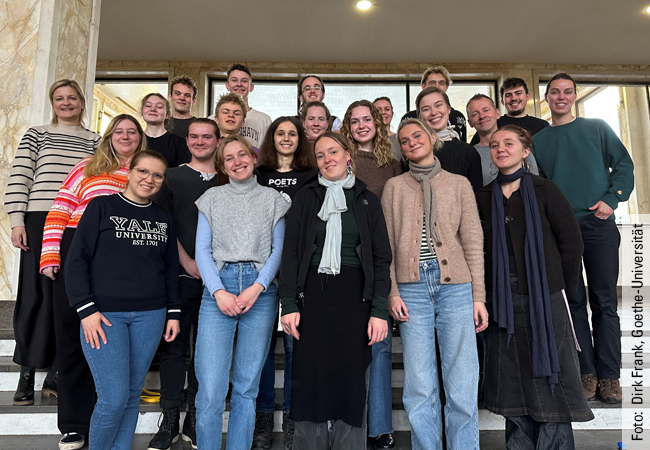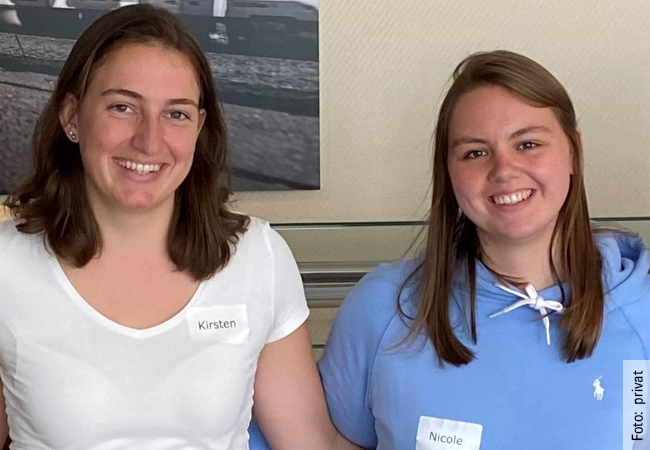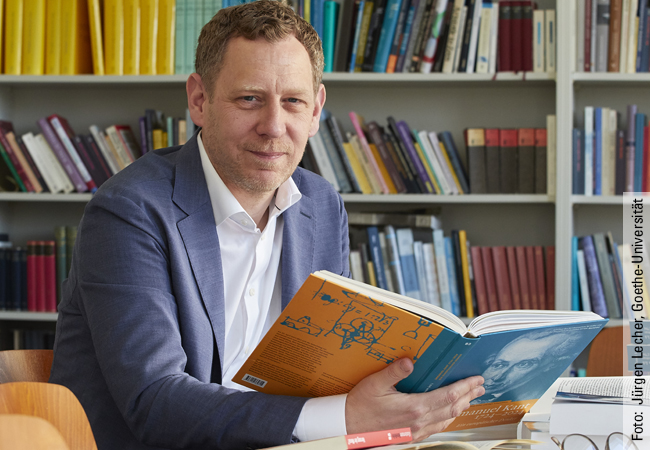As part of a tandem collaboration, students from Copenhagen, Frankfurt and Göttingen compiled cultural and linguistic knowledge in a game app.

“KulturSchmæck”, or “cultural tasting”, is the name of a new app developed by students from three European universities. It was unveiled in mid-January during the Danish seminar group’s visit to Goethe University Frankfurt. Marlene Hastenplug, lecturer in Danish at Goethe University’s Institute for Scandinavian Studies, and her colleague Lars Behnke, lecturer in German Studies at the University of Copenhagen, were visibly proud of their students’ creation. “What can we learn from each other? How do people talk about their everyday lives? How can we share this knowledge with those who are interested?”, Behnke says in explaining the three lecturers’ preliminary idea of combining cultural and linguistic knowledge with media skills in a product that exceeds the usual seminar work.
The material for the bilingual app was collected during field research carried out in Denmark and Germany: Passers-by were asked questions from eight different subject areas, which the teams had previously agreed upon during a video conference, and which ranged from food, music and remembrance culture to Christmas, digitalization, European identity, the school system all the way to wind turbines. For each topic, the app gives you a list of different people to choose from, e.g. a “23-year-old woman at the train station”, who happens to take a critical view on wind turbines. Having read her statement, users then have to answer the question: Is she Danish or German? In this case, those who thought this hostility towards technology must have come from a German woman is wrong. That being said, there are definitely areas of knowledge where it is relatively easy to determine whether a statement was made by a German or a Dane. As such, for Germans it is strange to watch a movie in original version with subtitles – a practice that is normal in Denmark. For some topics, players may be surprised to learn that national stereotypes do not always apply, including, for example, when it comes to the option of working from home. And while it is well-known that Germans are passionate bread eaters, the results of the street survey show that this applies just as much to Danes.
As part of the project, Rebecca, who studies Scandinavian Studies at Goethe University, and her fellow students worked on the topic of digitalization. “I found it very interesting that when it comes to this topic, we here in Germany think a lot about data protection. By contrast, the view in Denmark focuses on the practical aspect, including dealings with the authorities.” Ivan, a German studies student at the University of Copenhagen, also learned a lot about Germany thanks to the research: “I didn’t know there existed so many different Christmas traditions.” Hastenplug would like to build on the seminar’s positive experiences: “This type of practice-oriented teaching and international collaboration is very well received by the students. In developing the KulturSchmæck app, they also acquired a lot of media skills – which can be very helpful later in terms of career prospects.”
Link to the app: https://veduz.com/tyskapp












